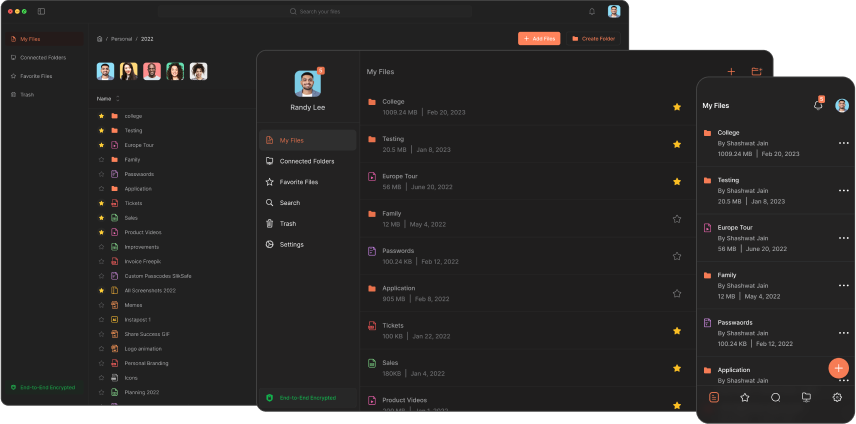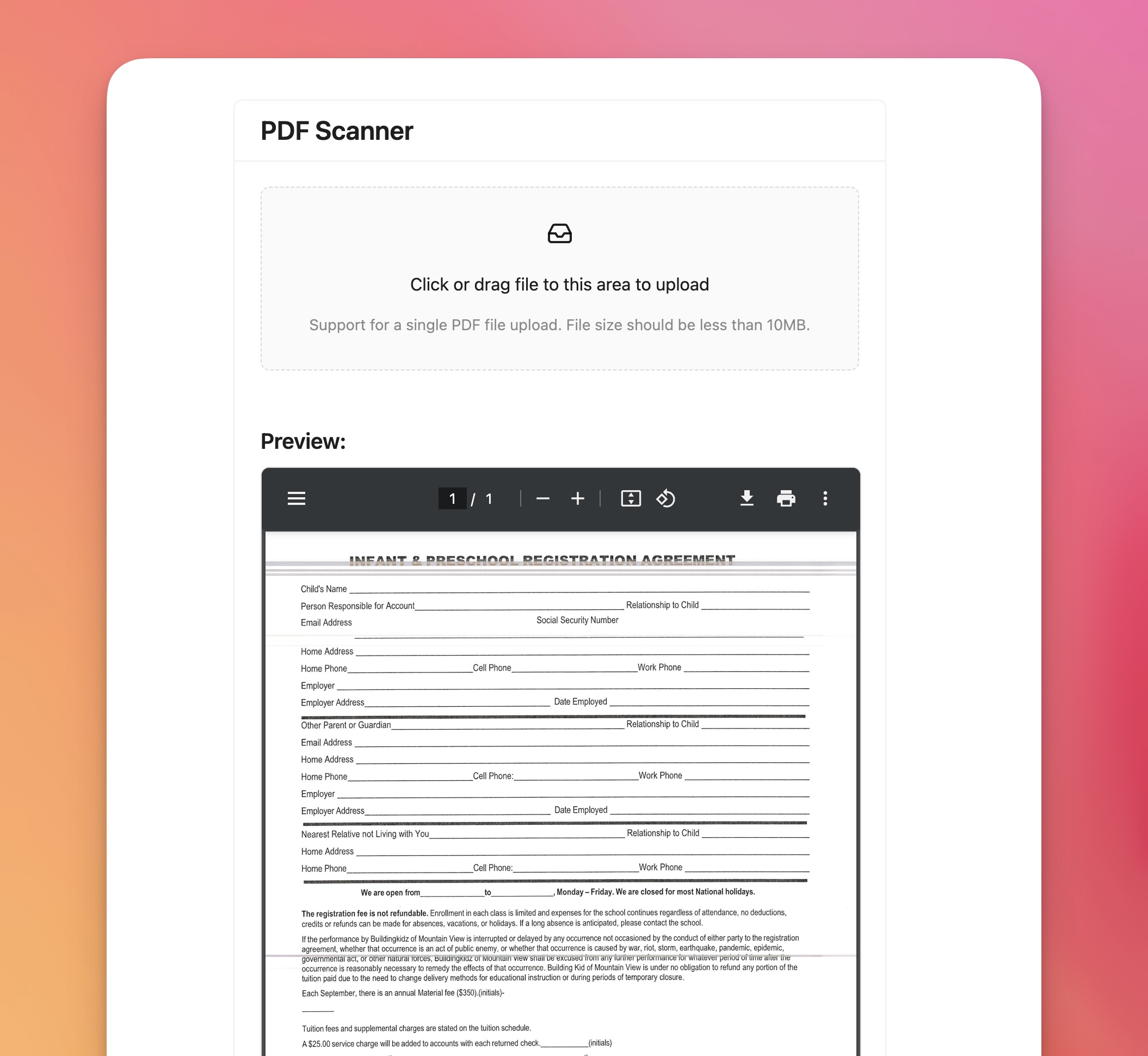Scan To PDF
Scan your files using AI and remove the background.Click or drag file to this area to upload
Support for a single PDF file upload. File size should be less than 10MB.
The Ultimate Guide to Windows Scan: Streamline Your Document Management
In today's digital age, effectively managing documents is crucial for both personal and professional productivity. Whether you're archiving important paperwork or sharing vital information, having robust scanning capabilities is essential. Windows Scan is a powerful tool that comes pre-installed with many Windows operating systems, providing a convenient and efficient way to digitize physical documents. In this comprehensive guide, we'll delve into everything you need to know about Windows Scan, from features and setup to tips for optimizing your scans.
Table of Contents
- What is Windows Scan?
- Why Use Windows Scan?
- How to Install Windows Scan
- Steps to Use Windows Scan
- Tips for Optimizing Your Scans
- Troubleshooting Common Issues
- Best Practices for Document Management
- Conclusion
What is Windows Scan?
Windows Scan is a built-in application in the Windows operating system that allows users to scan documents and images directly from their computer. The app supports scanning through various types of scanners, including flatbed scanners and sheet-fed scanners. It offers a user-friendly interface and a range of settings to customize the scanning process according to your specific needs.
Why Use Windows Scan?
There are several compelling reasons to use Windows Scan for your document management needs:
- Ease of Use: The interface is straightforward, making it easy for users of all skill levels to scan documents.
- Integration: Seamlessly integrates with Windows, ensuring compatibility and ease of access.
- Customization: Offers various settings such as resolution, color, and file format to tailor the scanning process.
- No Additional Cost: Since it's a built-in application, there are no extra costs involved.
- Quick Access: Availability through the Microsoft Store allows for easy installation and updates.
How to Install Windows Scan
If Windows Scan is not pre-installed on your system, you can easily install it from the Microsoft Store. Follow these steps:
- Open the Microsoft Store.
- In the search bar, type "Windows Scan" and press Enter.
- Click on the Windows Scan application from the search results.
- Click "Get" to download and install the application.
- Once installed, you can launch the app from the Start menu.
Steps to Use Windows Scan
Here's a step-by-step guide on how to use Windows Scan effectively:
Step 1: Connect Your Scanner
Ensure that your scanner is properly connected to your computer and powered on. If it's a wireless scanner, make sure it's connected to the same network as your computer.
Step 2: Launch Windows Scan
Open the Windows Scan application from the Start menu.
Step 3: Select Scanner
In the Scan app, select your scanner from the list of available devices. If your scanner is not listed, check the connection and drivers.
Step 4: Set Scanning Preferences
Specify your scanning preferences, such as:
- File Type: Choose between JPEG, PNG, or PDF.
- Color Mode: Select color, grayscale, or black and white.
- Resolution: Adjust the DPI (dots per inch) for desired quality.
Step 5: Preview (Optional)
For more accurate scanning, you can preview the document and make adjustments such as crop, rotate, or resize.
Step 6: Scan and Save
Click the "Scan" button to start scanning. Once the scan is complete, the document will be saved to your chosen folder.
Tips for Optimizing Your Scans
- High Resolution for Quality: For important documents, use a higher resolution (300 DPI or above).
- Proper Alignment: Ensure the document is properly aligned on the scanner bed to avoid skewed scans.
- Clean Scans: Periodically clean the scanner glass to avoid dust and smudges on scanned documents.
- Batch Scanning: Use sheet-fed scanners for multiple pages to save time.
- Organize Files: Use meaningful file names and folders to keep your scanned documents organized.
Troubleshooting Common Issues
Despite its user-friendliness, you might encounter some issues while using Windows Scan. Here are some common problems and how to fix them:
Scanner Not Recognized
Make sure your scanner is properly connected and powered on. Update the scanner drivers if necessary.
Poor Scan Quality
Check the resolution settings and ensure the scanner glass is clean. Use higher DPI for higher quality.
Scanned Image is Cropped
Preview the scan and adjust the document's placement on the scanner bed.
File Save Errors
Ensure you have write permissions to the folder where you're saving the documents. Check for sufficient disk space.
Best Practices for Document Management
Proper document management is essential for efficient workflow and data retrieval. Here are some best practices:
- Consistent Naming Conventions: Use a consistent format for file names, including dates and descriptive keywords.
- Organized Folder Structure: Create a hierarchical folder structure for easy document retrieval.
- Regular Backups: Regularly back up scanned documents to an external drive or cloud storage.
- Metadata Tagging: Use metadata for easier searching and categorization.
- Security Measures: Encrypt sensitive documents and use passwords where necessary.
Conclusion
Windows Scan offers a simple yet powerful solution for digitizing and managing your documents. With its user-friendly interface and robust features, it’s an invaluable tool for both personal and professional use. By following the steps and tips outlined in this guide, you can optimize your scanning process and improve your document management workflow.
Download Windows Scan from the Microsoft Store today and take the first step toward a more organized digital life.
By ensuring the proper setup and use of Windows Scan, you can streamline your document management, making it more efficient and less time-consuming. Implement these best practices and tips to make the most out of your scanning experience.
For more tips and insights on digital document management, stay tuned to our blog.
Happy Scanning!
Download Now
The Slikest Files Experience Ever Made

